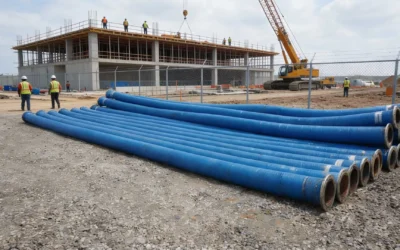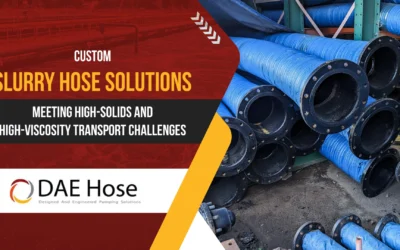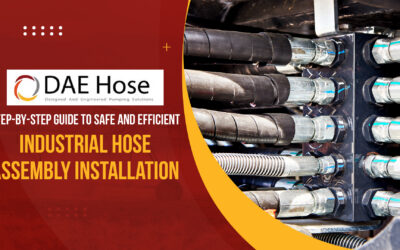The industrial hose sector is undergoing a significant transformation, driven by innovation, digitalization, and growing global demand for smarter, more efficient, and sustainable fluid-handling solutions. Once considered basic components, industrial hoses have evolved into critical systems that support a wide range of high-performance applications across various sectors, including manufacturing, construction, marine, and energy.
Today’s industrial hose manufacturers are expected to do more than just produce hoses. They are tasked with delivering intelligent, integrated systems that support automation, improve safety in hazardous environments, and align with environmental sustainability targets. In response, industrial hose manufacturers are developing smart hose systems equipped with real-time sensors and adopting cleaner, more efficient production methods.
As the industry continues to modernize, the expectations placed on industrial hose manufacturers and industrial hose suppliers have grown. Customers now demand comprehensive solutions, including advanced materials, end-to-end lifecycle support, and compatibility with digital monitoring platforms. This evolving landscape means that industrial hose manufacturers must serve not only as producers but as strategic partners in innovation.
In this article, we examine the trends reshaping the role of industrial hose manufacturers, with a focus on smart technologies, sustainable manufacturing practices, and advancements in global supply chain management. These advancements are not only enhancing product performance but also shaping the future of industrial infrastructure. Discover our comprehensive range of hose systems and innovations at DAE Hose.
The Changing Landscape of Industrial Hose Manufacturing
Industrial hose manufacturers are no longer just hose producers—they are technology providers, problem solvers, and supply chain partners. With industries evolving, industrial hose manufacturers must now deliver on performance, innovation, and speed.
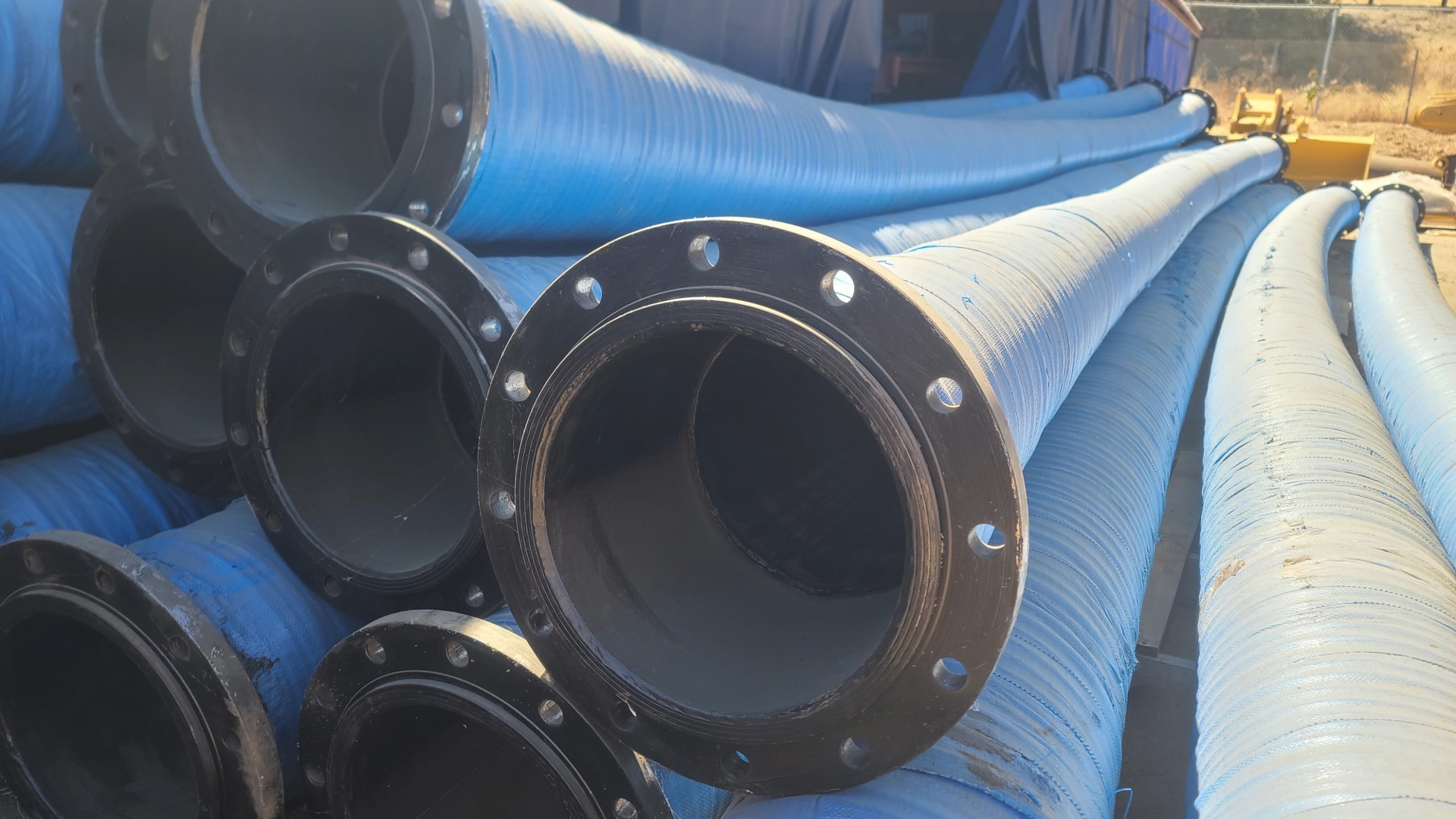
Today’s demands go beyond pressure ratings. Customers expect industrial hose manufacturers to offer smart hoses, fast delivery, and sustainable materials. As global markets shift, every industrial hose supplier must adapt to stay relevant.
From advanced composites to IoT-enabled products, industrial hose manufacturers lead with automation, efficiency, and compliance. Challenges like supply chain volatility and regulations require that every industrial hose maker innovate constantly.
Smart design, eco-friendly practices, and just-in-time logistics are now core to success. The future belongs to agile and intelligent industrial hose manufacturers who meet the changing global needs.
Smart Hoses: The Future of Industrial Fluid Transfer
What Are Smart Hoses?
Smart hoses are advanced hose systems embedded with electronic sensors and connected to digital platforms. These hoses can monitor temperature, pressure, wear, flow rates, and other parameters in real time. They are designed to predict failures, improve efficiency, and increase safety.
For modern industrial hose manufacturers, developing smart hoses means combining fluid dynamics with data science, offering real-time monitoring capabilities that were previously only available in high-tech equipment.
Benefits for Industrial Hose Suppliers and End Users
Smart hoses offer several competitive advantages for both suppliers and end users:
- Predictive Maintenance: Get alerts before a hose fails, reducing downtime.
- Enhanced Safety: Prevent catastrophic leaks or bursts by continuously monitoring key parameters.
- Cost Efficiency: Prevent unnecessary replacements through precise diagnostics.
- Data-Driven Decisions: Gain insights into system performance and fluid behavior.
An industrial hose supplier that integrates smart hose offerings can deliver not only components but also a fully integrated system of intelligence.
Examples of Smart Hose Applications
Smart hoses are being used in:
- Hazardous Chemical Transfer: Ensures safety in volatile environments.
- Marine Dredging Operations: Monitors pressure surges and flow rates in real time.
- Food and Pharmaceutical Industries: Tracks contamination risk and fluid temperatures.
How Industrial Hose Manufacturers Are Adopting Smart Technologies
Forward-thinking industrial hose makers are:
- Partnering with IoT and electronics companies
- Establishing in-house R&D labs for sensor integration
- Launching smart product lines (e.g., hoses with built-in diagnostics)
Brands leading this charge are setting new standards in industrial hose performance and customer satisfaction.
Sustainability as a Core Focus for Industrial Hose Makers
As environmental awareness intensifies across global industries, sustainability has become a cornerstone of modern manufacturing. For industrial hose manufacturers, this shift is not merely a matter of regulatory compliance—it’s now a key market differentiator. Customers are increasingly aligning themselves with suppliers who demonstrate clear commitments to eco-conscious practices, circular economy models, and environmentally friendly innovation.
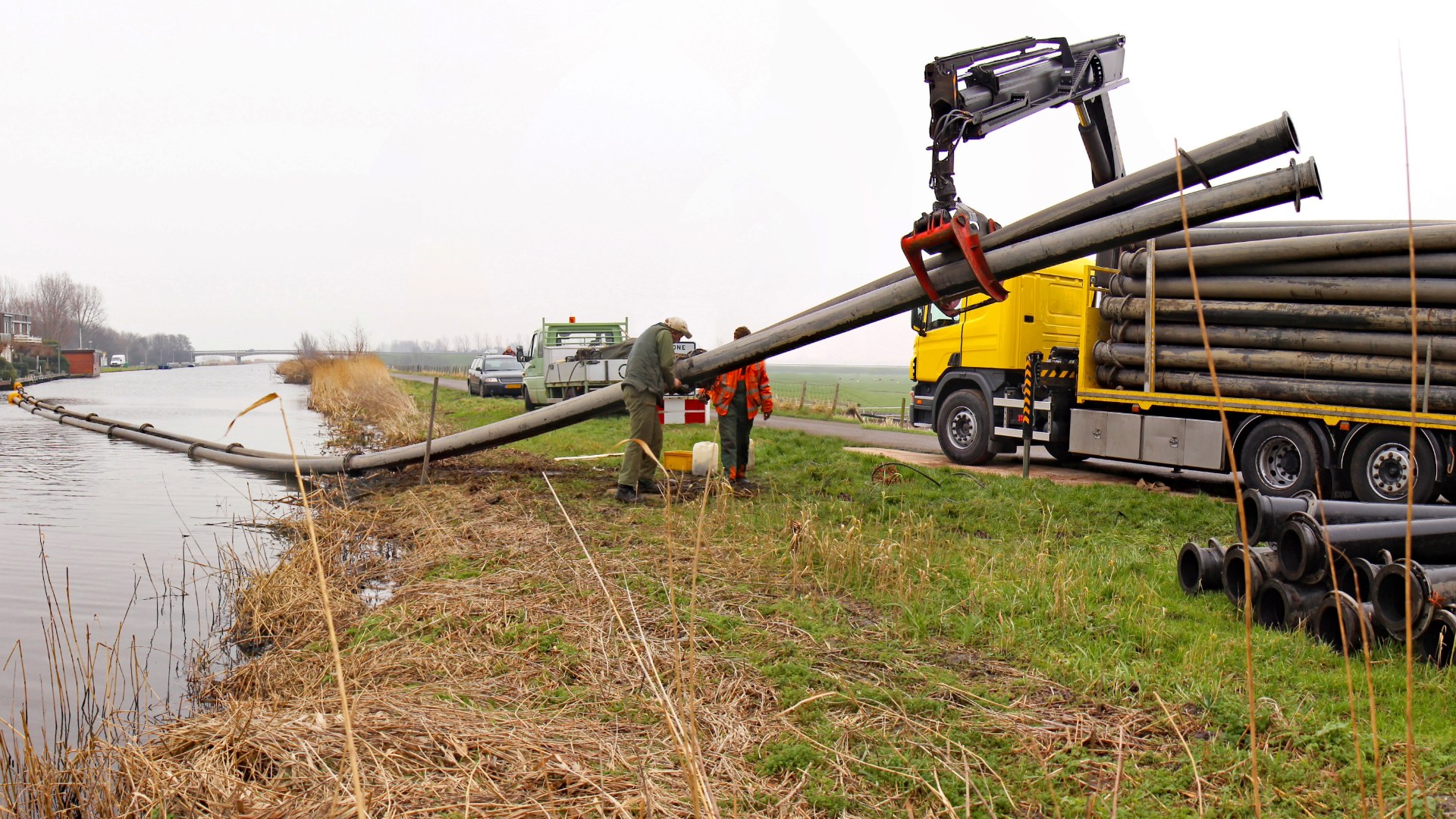
Eco-Friendly Materials and Production Processes
One of the most significant areas of focus is the development and use of sustainable materials. Leading industrial hose makers are phasing out petroleum-based rubbers and non-recyclable plastics in favor of recyclable thermoplastics, bio-based polymers, and low-toxicity elastomers. These alternatives maintain performance integrity while reducing environmental impact.
Additionally, manufacturers are improving their production processes to reduce VOC (Volatile Organic Compound) emissions, lower energy consumption, and minimize water waste. Some facilities have adopted closed-loop systems for material recovery and solvent reuse, which helps decrease their carbon footprint.
Durability is another key factor. Designing hoses for extended service life, multi-cycle usage, and modular repair means fewer replacements, less material waste, and reduced manufacturing output-further supporting sustainability goals.
Forward-looking industrial hose suppliers, such as DAE Hose, are also implementing take-back and recycling programs, helping clients reduce waste and close the product lifecycle loop.
Environmental Regulations and Global Standards
Environmental compliance is now a global concern and is highly enforced. Industrial hose manufacturers must align with key international standards, including:
- REACH (Registration, Evaluation, Authorization and Restriction of Chemicals) – Ensures that chemicals used in hose manufacturing are safe for people and the environment (primarily in the EU).
- RoHS (Restriction of Hazardous Substances) – Limits the use of specific hazardous materials in electrical and electronic components.
- ISO 14001 – A globally recognized environmental management standard that ensures sustainable and responsible manufacturing practices.
These standards aren’t optional. Buyers are increasingly evaluating industrial hose manufacturers based on their environmental certification status before making procurement decisions, especially in highly regulated industries such as food processing, pharmaceuticals, and offshore energy.
The Circular Economy in Hose Manufacturing
The concept of the circular economy, which emphasizes waste reduction, product reuse, and material recovery, is being actively embraced by top-tier hose manufacturers. Examples include:
- Designing hoses with modular ends or connectors that can be replaced without discarding the entire hose.
- Repurposing used hose floats, end fittings, or damaged couplings into raw materials for new products or secondary industrial uses.
- Offering refurbishment services with protective coatings or liners to extend the lifespan of products.
Especially in marine and offshore operations, hose floats and accessories are now being redesigned with UV-resistant, anti-fouling, and impact-resistant materials that extend durability and reduce waste from frequent replacements.
Customer Expectations from Industrial Hose Suppliers
Today’s industrial buyers now prioritize sustainability and ESG goals, expecting eco-friendly materials, recyclable components, and transparent practices from hose partners.
- Transparent reporting of a supplier’s environmental impact
- Certifications proving adherence to global green standards
- Minimized carbon footprint in the production, packaging, and delivery process
This has elevated expectations for every industrial hose supplier in the market. Many companies are now publishing annual sustainability reports, investing in carbon offsetting, and integrating green compliance directly into their customer experiences.
By aligning with sustainability at every level—materials, design, operations, and delivery—industrial hose manufacturers are not only meeting regulatory expectations but also gaining a competitive edge in a marketplace where environmental responsibility matters more than ever.
Supply Chain Innovations Reshaping the Industry
Industrial hose manufacturers are transforming their supply chains by utilizing digital tools and implementing localized strategies. AI-driven forecasting, smart warehousing, and cloud logistics are enabling industrial hose suppliers to offer faster delivery and real-time tracking.
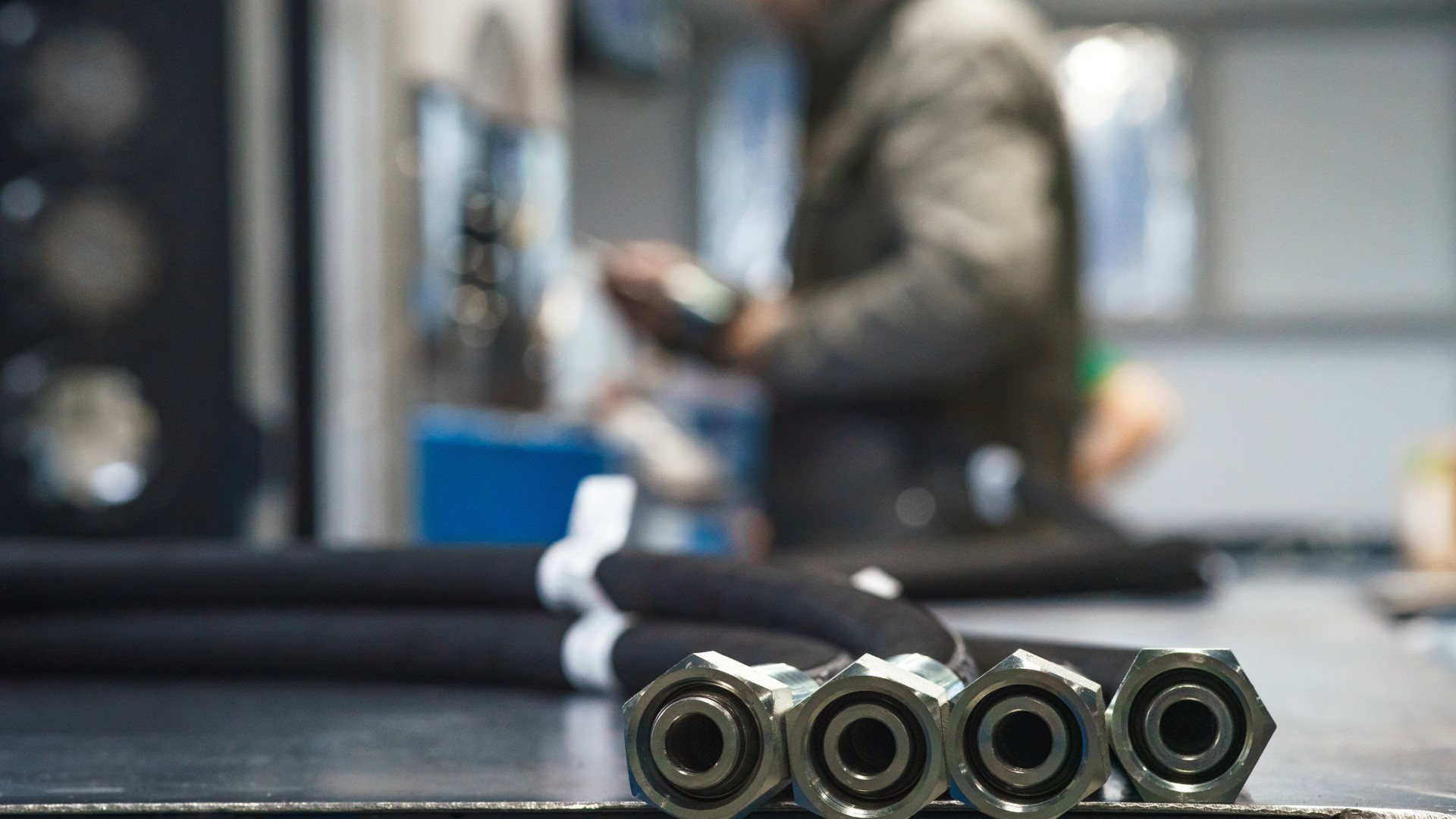
To mitigate risks, industrial hose manufacturers now invest in nearshoring and on-demand production. This ensures better speed, lower emissions, and supply stability—especially critical for large projects like offshore dredging.
Since the COVID-19 pandemic, industrial hose makers have diversified their sourcing and established local hubs to enhance resilience. Today’s buyers expect contingency plans and transparent sourcing from every industrial hose supplier.
ERP and cloud systems allow industrial hose manufacturers to coordinate production, monitor inventory, and serve clients with real-time updates. These systems enhance agility, accuracy, and client satisfaction across the board.
The Evolving Role of the Industrial Hose Supplier
Gone are the days when industrial hose suppliers were seen simply as product vendors, responsible only for delivering hoses and parts upon request. In today’s fast-paced, safety-critical, and innovation-driven industries, the role of the industrial hose supplier has undergone a dramatic evolution. These companies are now expected to serve as strategic partners, offering not only components but also holistic solutions that align with customers’ operations, compliance requirements, and long-term performance goals.
Industrial hose manufacturers now play a key role in supporting complex industrial systems. Modern industrial operations demand hoses that can withstand extreme conditions, integrate with automated systems, and meet stringent regulatory standards. As a result, clients now expect their industrial hose supplier to offer far more than off-the-shelf products.
What Customers Expect from Industrial Hose Suppliers Today
Custom Engineering and Application Support
Clients are often working with highly specialized systems—whether it’s a chemical plant, a dredging vessel, or a food processing line. They require custom-engineered hose assemblies that meet specific dimensions, flow rates, pressure ratings, and environmental conditions. Industrial hose manufacturers must provide design support, technical consulting, and simulation data to assist clients in selecting or developing the ideal product for their specific needs. The industrial hose maker must collaborate closely with engineering teams to ensure seamless integration into existing systems.
Regulatory Compliance and Documentation
Industries like pharmaceuticals, oil and gas, and food processing are heavily regulated. Customers expect complete documentation, including compliance with ISO, FDA, REACH, RoHS, and other regional and industry-specific standards. A reputable industrial hose supplier must maintain accurate records and be capable of providing material certifications, quality control reports, and traceability documentation on demand. Leading industrial hose manufacturers differentiate themselves by maintaining a proactive stance on compliance.
Post-Installation Services
Support doesn’t end with product delivery. More clients now seek ongoing service packages that include:
- On-site or remote installation guidance
- Maintenance training for technicians
- Access to remote monitoring tools for smart hoses
- Scheduled inspection and servicing agreements
Industrial hose suppliers offering these services position themselves not just as vendors, but as trusted operational partners with a vested interest in performance, safety, and efficiency. This partnership model is gaining traction among the world’s leading industrial hose manufacturers.
Digital Transformation and Value-Added Services
The most competitive industrial hose suppliers are leveraging digital tools to provide added value:
- Virtual consultations and video support enable clients to resolve issues in real-time, eliminating the need for in-person visits.
- Interactive digital catalogs and configurators enable faster and easier product selection, particularly for global buyers.
- 3D modeling and CAD integration allow seamless compatibility with the customer’s design environment, reducing rework and errors during installation.
Today, being an industrial hose maker means more than producing hoses, it requires technical agility, compliance readiness, and service excellence. In this new era, the modern industrial hose manufacturers must be agile, knowledgeable, and technologically enabled. By offering a combination of product expertise, engineering support, compliance assurance, and digital convenience, these providers can establish long-lasting partnerships that extend far beyond a single transaction.
Future Outlook: What to Expect by 2030
Where the Industry Is Headed in the Next Five Years
- Smart hoses with embedded sensors will become standard.
- Mobile dashboards will provide predictive analytics and AI-driven maintenance alerts.
- Sustainability will be a core expectation, with leading industrial hose manufacturers adopting circular economy models.
- Eco-labels and carbon impact will guide buying decisions; components like industrial hose floats will be designed for reuse.
- Digital supply chains, powered by cloud ERP, real-time tracking, and AI forecasting, will become the norm.
- Local production hubs and 3D printing will enhance responsiveness.
Buyers will choose hose systems partners that offer consulting, integration, and full lifecycle support.
Shaping the Future of Industrial Hose Manufacturing
The industrial hose industry is undergoing a transformation at an unprecedented pace. As technology and sustainability reshape the market, industrial hose manufacturers must innovate or risk being left behind.
Smart hoses are enabling real-time insights. Sustainability is reshaping design and production. Supply chain innovation is delivering speed and resilience. Together, these trends are elevating the role of the industrial hose maker from a product vendor to a strategic partner.
For businesses seeking reliability, efficiency, and forward-thinking support, choosing the right industrial hose supplier is more critical than ever. Visit DAE Hose to explore cutting-edge solutions in hose technology, sustainability, and smart fluid systems.



